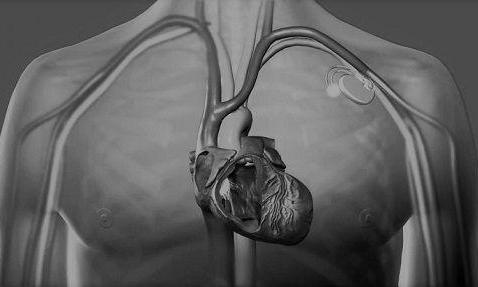Indian scientists develop an anti-hacking system for implanted medical devices. Implanted medical devices have gain importance in the recent times since it allows continuous remote monitoring of patients. Since these devices are wifi linked, they are vulnerable to hacking. Though there are solutions available at present, the one developed by the Indian Data Scientist is efficient to the extent of 98%.
New Delhi (ISJ Exclusive) – Ancient Indians’ wisdom has inspired many a modern scientific development. Science and technology in ancient and medieval India covered all major branches of human knowledge and activities, including mathematics, astronomy, physics, chemistry, shipbuilding and navigation, sports and games. In the field of medical sciences, Ayurveda as a science of medicine owes its origins in ancient India.
More recently, American psychologist developed by F. Rosenblatt developed a theory about how human neural system works in terms of sensing information from the physical world, how they store information and how this stored information influences recognition and behavior. Rosenblatt, in his paper titled “Perceptron: A Probabilistic Model for Information Storage and Organization in the Brain”, which was published in Psychological Review, in 1958, talked only about a single layer of perceptron.
Building on this study, Dr Heena Rathore, Data Scientist in Texas developed a system to prevent vulnerability of implanted medical devices. She has improved the feedback mechanism and bringing in different layers of sensing, by utilizing a perception with multiple layers. Their system replicates how higher organism evolve the capability for perceptual recognition, generalization, recall and thinking.
Internet and technology have changed the healthcare system. A combination of both has brought the Internet of Medical Things technology, which led to automation in health management, and monitoring of devices have become simple and scalable.
Intelligent health care has gained importance in the recent past since it allows continuous remote monitoring of patients. This has significantly increased the number of patients who are choosing to enhance their personal satisfaction through a surgical methodology that includes embedded medical devices.
These medical devices are currently becoming a pervasive part of cutting edge medicinal care. Implantable Medical Devices (IMDs) have brought in therapeutic improvements, leading to a powerful change in the quality of life for its users. Nevertheless, with the expanded life expectancy in today’s life, the requirement for new medicines, implants, and long-term pharmaceutical utilization has increased manifold. These devices have extended the capacity of doctors to analyze and treat patients away from diseases, making extraordinary commitments to the well-being and providing personal satisfaction to patients.
IMDs are placed inside the human bodies to analyze, monitor and respond to treat various medical conditions. These devices range from neuro-stimulators for the brain, gastric stimulators for the stomach, cardiac defibrillators for the heart, cochlear implant for hearing, drug delivery system such as insulin for diabetic patients, artificial eye lenses for cataracts etc.
Implantable Medical Devices are vulnerable to hacking, which could mean theft of sensitive medical records. Since prevalence of wireless connected medical devices is increasing, it makes them potential entry points to larger hospital networks as these IMDs are connected to a huge array of sensors and monitors.
“IMDs are designed to communicate with outside caregiver to have access to the patient’s data remotely. However, an adversary can also eavesdrop on the conversation to gain access to the information contained in the devices. An adversary can attack the system components or wireless channel between the patient wearing IMD and the caregiver,” said Dr Heena Rathore, told Indian Science Journal.
Dr Heena Rathore has found a parallel with human brain to overcome this problem and prevent these devices from being hacked.
“I have implemented and verified the results not only on software simulations but validated the same on hardware testbed. The results showed that if the same technique is applied to the IMD hardware device, the system would be able to classify the genuine and fake glucose measurements with high accuracy,” said Dr Rathore.
For security for implantable medical devices features like age, plasma glucose concentration, blood pressure, body mass index, date, time, glucose value etc. for each patient was selected and trained. Training was done for 30,000 representative data samples. Dr. Rathore’s has applied this concept to achieving security in low power IoT devices, specifically targeted at wireless medical devices and applications. She has shown that this technique achieves accuracy in the upper 98% range and is order of magnitude more efficient than other techniques, such as biometric based approaches, distance/proximity-based techniques, key management protocols, audit mechanisms, anomaly detection mechanisms and external device methodologies which are the state of the art for present medical devices. By performing many of the complex math operations on the device itself, rather than pushing data to the cloud, Dr. Rathore has been able to make these devices more accessible and less susceptible to hacking through the wireless communication medium. Achieving such a high accuracy when it is concerned to the patient’s health, makes them robust and efficient systems to spark next technological innovations.
“There are solutions available for IMDs security i.e. biometric-based approaches, distance/proximity-based techniques, key management protocols, audit mechanisms, anomaly detection mechanisms and external device methodologies. However, the proposed solution is efficient with respect to the existing solutions that are present in the market,” explained Dr Rathore.


